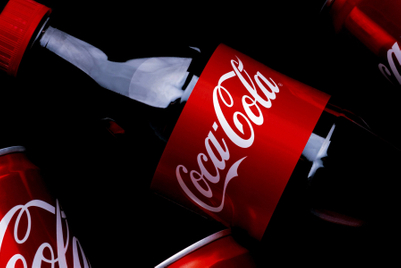
MEC's research showed that Yingli Solar's awareness rose from close to nothing to 30 per cent after the World Cup. In the city of Chengdu, the capital city of Southwest China's Sichuan Province, awareness rose to 36 per cent.
The report also shows that Yingli achieved impressive results in all indicators along the purchase pathway. It managed to translate awareness (30 per cent) to interest in the brand (24 per cent), to preference for the brand (18 per cent) and then to intention to buy (11 per cent).
Despite claiming 7 per cent of the global solar energy market, Yingli Solar itself was a little known brand outside of the solar panel industry before the World Cup, according to Bloomberg New Energy Finance.
Michelle Ko, president of MEC China, said, "Sponsorship of mega-events, when deployed as part of a communications strategy, is a great way to create active engagement between brands and consumers. Yingli Solar has done an excellent job in building bonds with Chinese consumers."
She cited a comment from a blogger that said, "China's soccer team did not make it to the World Cup, but Chinese advertisement did. Just seeing the two characters zhong guo (中国) [on TV] makes me all emotional", and added its a really positive testament to the success of Yingli Solar's strategy.
However the research did point out that Yingli Solar's other objective for this sponsorship - to create awareness and boost its image in the international arena - has not been as successful.
In addition to Yingli Solar, three other lesser known players used sponsorship of the World Cup to make their debut into the international arena, including Seara of Brazil, Mahindra Satyam of India and MTN of South Africa.
The 2010 World Cup attracted more than 500 million TV viewers and was a great vehicle through which to put a company on the world map. However, judging by the search traffic and news mentions these brands garnered internationally, the results were disappointing.
A review of Google Trends for the past 12 months showed that these new comers to the global stage, in particular Yingli Solar, did not generate much interest.
This is especially the case when compared to an established giant such as Coca-Cola, who had managed to build search volume for the past 12 months to its highest point during the World Cup. Coca-Cola has been a long standing sponsor of the World Cup and other mega-events, such as the 2008 Beijing Olympic Games.
It is therefore no surprise that Chinese consumers are well aware of Coca-Cola's sponsorship of the World Cup in South Africa.
"We are sure to see more Chinese brands using strategic sponsorship of mega events to make their debut into the international arena," said Theresa Loo, national director of strategic planning, analytics and insight, MEC China.
"However, it is more than the communication of a solo event. A brand needs to both communicate to ‘promote the sponsorship' prior to the event and ride on the momentum it creates to further invest in brand building afterwards, to be successful in international marketing arena. Chinese brands still have a long way to go," she added.
Methodology
These results are from a 2-wave research study conducted by MEC to measure (1) interest in the World Cup (2) likely viewing habits, and (3) sponsor awareness.
A total of two surveys were conducted online before (27 April to 7 May, 2010) and after (12 to 17 July, 2010) the World Cup by GMI, an international online research agency. The sample size was 1000 respondents across 5 cities (Beijing, Shanghai, Guangzhou, Chengdu, Shenzhen) in China.
For more local breaking news from China, Hong Kong, Taiwan and Macau, go to en.campaignchina.com.


.jpg&h=334&w=500&q=100&v=20250320&c=1)


.png&h=334&w=500&q=100&v=20250320&c=1)




.png&h=334&w=500&q=100&v=20250320&c=1)


.jpg&h=268&w=401&q=100&v=20250320&c=1)




.png&h=268&w=401&q=100&v=20250320&c=1)
